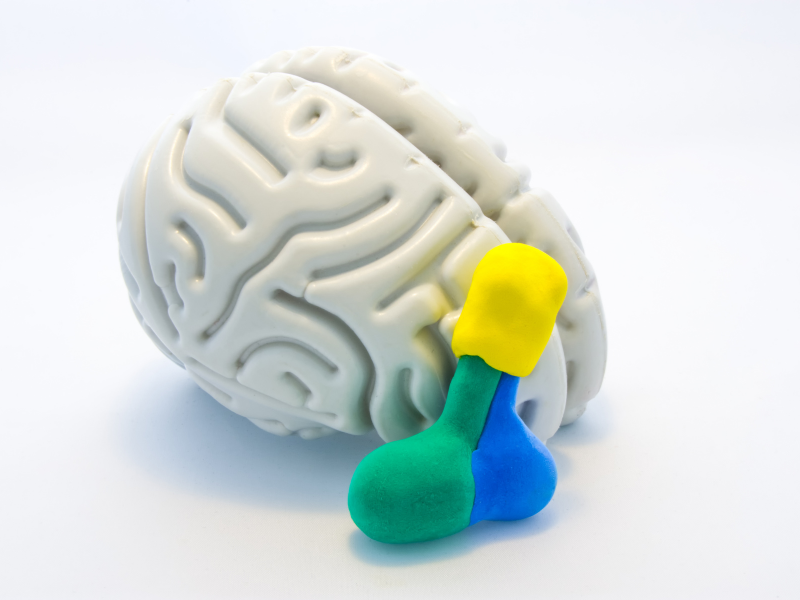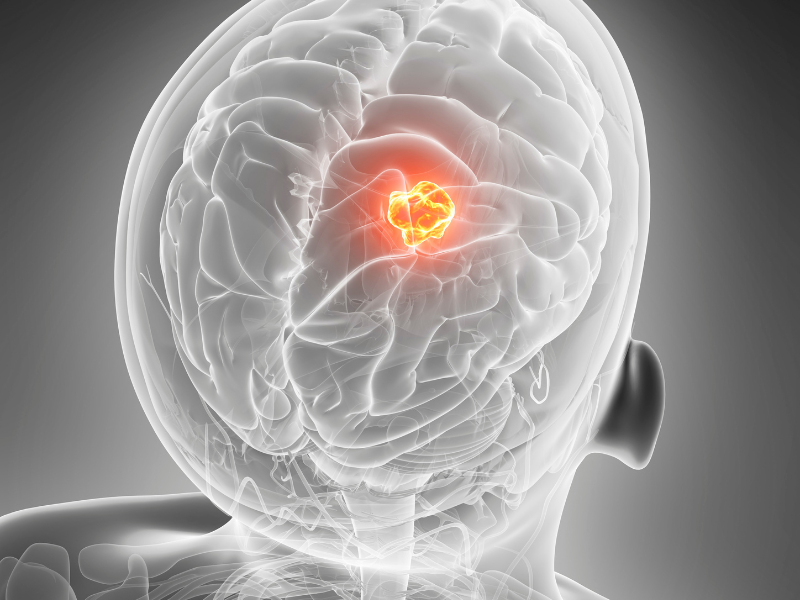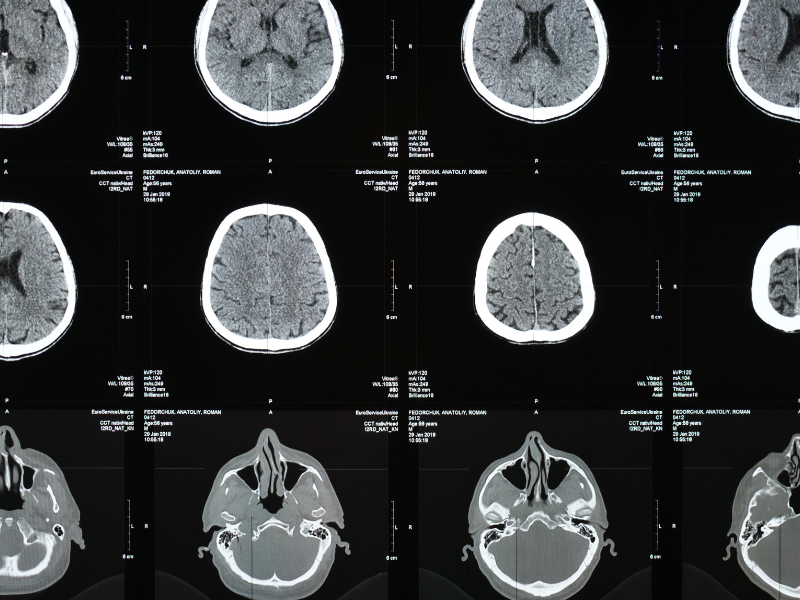Your hormones could be shutting down, and you might not even know it! That’s the scary part of Hypopituitarism. It’s a rare condition where your pituitary gland stops producing enough hormones, affecting everything from your energy levels to your body’s ability to grow, reproduce, and even function normally. Hypopituitarism symptoms are often slow. Hypopituitarism is a rare condition where the pituitary gland fails to produce adequate hormones, affecting growth, metabolism, and reproduction. While treatment can be costly, crowdfunding in India provides patients with a way to access necessary care without financial stress.
It includes fatigue, weight gain, mood swings, irregular periods, and low sex drive. Many people ignore these or blame them on stress or age. But if it’s left untreated, Hypopituitarism can lead to serious health problems.
In this blog, we will share the meaning of hypopituitarism, hypopituitarism symptoms, its causes, diagnosis, and treatment. Managing hypopituitarism often requires hormone replacement therapy, regular doctor visits, and lab tests. Families can raise money online to cover these ongoing medical expenses efficiently and securely.
Read More: Top 10 Lifestyle Diseases In India & How To Manage Them
Table of Contents
What is Hypopituitarism?

Hypopituitarism, also known as pituitary insufficiency, is a condition where your pituitary gland fails to produce one or more of the hormones your body needs. This lack of hormones can affect how your body functions, including growth, metabolism, blood pressure, and reproduction. Depending upon which hormones are missing, this condition can lead to a wide range of health problems. This is the reason Hypopituitarism symptoms are often overlooked. Reliable crowdfunding platforms allow patients to share their health journey, connect with donors, and raise funds for treatments, ensuring timely access to medications and specialist consultations.
Hypopituitarism Symptoms
Once the meaning of hypopituitarism is clear, it becomes easier to connect it with the underlying symptoms. As it affects different hormones, its signs vary from person to person. Here is a list of Hypopituitarism Symptoms grouped by deficiency:
Hypopituitarism Symptoms for Growth Hormone Deficiency (GHD)
GHD is usually seen in children. In this condition, the pituitary gland does not produce enough growth hormone. Here are its symptoms:
- Short height
- Noticeably slow growth
- Chubby body
- Younger-looking face
- Impaired nail or hair growth
- Delayed puberty
GHD can also be seen in adults, even though it’s rare and might hint at a pituitary gland tumor. Here are the GHD symptoms that adults might face:
- Increased body fat, especially around the waist
- Weakness
- Fatigue
- Less memory and concentration
- Reduced sense of well-being
- Anxiety/ Depression
- Reduced strength and energy levels
- Reduced bone strength
- Thinner skin
Hypopituitarism Symptoms for TSH Deficiency
Your pituitary gland produces the hormones that stimulate your Thyroid gland to produce TSH. In case of a deficiency in these hormones, your thyroid gland will not be able to produce enough TSH, leading to the condition called hypothyroidism. Here are its symptoms:
- Joint and muscle pain
- Tiredness
- Weight gain
- Constipation
- Dry skin
- Sensitivity to cold
- Thinning hair
- Slow heart rate
- Depression
- Fertility issues
- Irregular periods
Hypopituitarism Symptoms for FSH and LH Deficiency
Luteinizing hormone (LH) and follicle-stimulating hormone (FSH) are called gonadotropins. These are important for the reproductive system. The lack of these hormones keeps the ovaries from making enough eggs and estrogen in females and keeps the testicles from making enough sperm and testosterone in males. This can lead to low sex drive and might make it hard or impossible to have children. With the complexity of hypopituitarism management, crowdfunding India has become a vital support system for patients who need continuous financial assistance for proper diagnosis and therapy.
Symptoms of this deficiency can depend on age. Children might face these symptoms:
- Lack of penis growth (micropenis)
- Lack of testicle growth
- Delayed growth during puberty
- Lack of breast development in females
Adults might notice these symptoms:
- Fatigue
- Low sex drive
- Irregular or no periods
- Loss of pubic hair
- Fertility issues
- Erectile dysfunction
- Decreased face or body hair in males
- Hot flashes
- Low milk production for breastfeeding after childbirth
Hypopituitarism Symptoms for ACTH Deficiency
Adrenocorticotropic hormone (ACTH) is a hormone produced by the pituitary gland that stimulates the production of cortisol in your adrenal gland. This helps the body react to stress. ACTH deficiency can lead to symptoms like:
- Low blood pressure
- Vomiting and stomach ache
- Weight loss
- Severe tiredness
Hypopituitarism Symptoms for Low Prolactin Levels
Prolactin is the hormone that signals the body when to start making breast milk. Prolactin deficiency creates problems with producing enough milk for breastfeeding after childbirth. Choosing a trusted crowdfunding platform in India ensures transparency, faster withdrawals, and wider outreach, helping patients get the medical attention they need without delays.
Hypopituitarism Symptoms for Oxytocin Insufficiency
Oxytocin hormone is responsible for uterine contractions during childbirth and lactation after childbirth. It is also known as love hormone as it affects human behavior such as creating bondings and affection.
Oxytocin deficiency leads to symptoms as listed:
- Difficulty in forming emotional bonds
- Reduced bone mineral density
- Weight gain
- Anxiety and stress
- Depression
- Reduced impulse control
- Potential impaired social interaction
Hypopituitarism Symptoms for ADH Insufficiency
Antidiuretic hormone (ADH), also known as vasopressin, helps the body with various functions. It balances body fluids and regulates blood pressure and kidney functions. Its deficiency is called arginine vasopressin disorder or diabetes insipidus. Here are the symptoms one can notice while facing ADH deficiency:
- Dehydration
- Increased urination
- Increased thirst
- Electrolyte imbalance
While gender and age do affect how symptoms appear, the most accurate way to understand hypopituitarism is by grouping symptoms based on which specific hormone is lacking.
This approach gives a clearer picture of what’s happening inside your body and helps doctors treat the condition more precisely. So instead of looking for Hypopituitarism symptoms for females, males or kids, there is more need to understand specific hormonal deficiency.
Hypopituitarism Causes

Now that we have covered the hypopituitarism meaning, let’s see what causes this condition.
Pituitary gland Tumor
Tumor growths, also known as pituitary adenomas, can press on the gland or nearby structures. This can disrupt hormone production. Larger tumors may also cause vision problems and headaches. Sometimes, treatment for the same can also lead to pituitary insufficiency.
Brain Surgery or Radiation Therapy
As seen above, surgeries near the pituitary gland, especially those for brain tumors, can unintentionally harm the gland.
Radiation therapy for head or neck cancers can also affect pituitary function, sometimes even years later.
Brain Tumor
Brain tumors can be another cause of hypopituitarism. Even the tumors near the pituitary gland can damage its functioning.
Head Injury or Trauma
A severe head injury or accident can damage the pituitary gland or the brain area that controls it (hypothalamus). This damage can cause pituitary gland dysfunctioning causing hypopituitarism. This cause is often missed until symptoms show up gradually over time.
Infection or Inflammation
Certain infections, like tuberculosis, meningitis, or syphilis, can cause inflammation or damage to the pituitary gland.
Pituitary Apoplexy
This is a sudden bleeding or loss of blood supply to the pituitary gland, usually inside an already present tumor. It’s a medical emergency that causes severe headaches, vision changes, and even loss of consciousness. Pituitary apoplexy can quickly damage the gland, leading to acute hypopituitarism and hormone failure.
Congenital Hypopituitarism
Congenital Hypopituitarism is where the pituitary gland never properly developed from birth. It might be due to abnormal brain development in the womb or injuries during birth.
Less Common Causes
Hemochromatosis
This is a genetic disorder where the body stores too much iron. This excess iron can deposit in the pituitary gland, which can gradually impair hormone production. It’s more common in adults and may also affect other organs like the liver and heart.
Histiocytosis
This is a rare condition where immune cells increase in different parts of the body, including the brain. When these cells gather around the pituitary gland, they can damage it and disrupt hormone flow.
Lymphocytic Hypophysitis
This is an autoimmune condition where the body’s immune system attacks the pituitary gland. More commonly seen in women during or after pregnancy. This can cause inflammation, leading to hormone deficiencies.
Sarcoidosis
Sarcoidosis is a rare inflammatory disease where small clumps of cells called granulomas are formed in organs. If it involves the pituitary gland or hypothalamus, it can lead to hormone imbalance. Its symptoms may develop slowly and are often missed at first.
Sheehan Syndrome
This is one of the rarest causes of Hypopituitarism. This is a postpartum complication where there is severe blood loss during childbirth. This causes the pituitary to lose blood supply, leading to hormonal dysfunction.
Understanding these Hypopituitarism causes of hypopituitarism can help you choose the right treatment and reduce further complications.
Can Hypopituitarism Cause Other Conditions?
Yes, since the pituitary gland controls multiple hormones, its dysfunction can cause further health conditions. Here is the account of some of them:
How does Hypopituitarism Cause Diabetes?
Hypopituitarism can indirectly contribute to diabetes, particularly when growth hormone and cortisol levels are low. These hormones play a major role in maintaining blood sugar balance. Their deficiency can cause the body to become more sensitive to insulin or affect how glucose is processed, increasing the risk of diabetes.
How does Hypopituitarism Cause Hyperglycemia (high sugar level in blood)?
Usually, hypopituitarism causes hypoglycemia (too low sugar levels), but sometimes the disruption of the hormones that regulate glucose and metabolism can also cause hyperglycemia. Especially if there is a deficiency in the hormones that promote insulin sensitivity. Or overproduction of the counter-regulatory hormones. Many people confuse hyperglycemia with diabetes, but diabetes is a metabolic disorder, and hyperglycemia can be caused by various conditions. In this case, hypopituitarism.
How does Hypopituitarism Cause Pallor (Paleness)?
If hypopituitarism is due to a deficiency of TSH and ACTH hormones, it will lead to hypothyroidism and adrenal insufficiency, respectively. This, in turn, will result in anemia or skin pigmentation, causing Pallor.
How does Hypopituitarism Cause Jaundice?
Although it is very rare, hypopituitarism causes jaundice in infants and newborns. This is due to impaired liver function, which affects bilirubin metabolism and bile flow. Bilirubin is the yellow pigmentation that results when the red blood cells break down. The liver processes this bilirubin and makes it water-soluble for excretion in bile. In hypopituitarism, the liver’s ability to process bilirubin, conjugate, and excrete bilirubin is impaired, leading to jaundice.
Now that we know hypopituitarism’s meaning, symptoms, risks, and how hypopituitarism causes, it becomes important to know how to make necessary lifestyle changes to not let it disrupt our lives.
Is There Any Hypopituitarism Treatment To Cure It?

Hypopituitarism treatment depends upon the cause of the condition. You can take hormonal replacement therapy, which involves taking the medicines that increase the level of specific hormones. Many times, the patient needs to take the medicines for the rest of their life. Or you can go for surgery or radiation therapy if the tumor is the cause of hypopituitarism. However, it’s important to understand that hypopituitarism is a lifelong condition. You will have to live with it, but that doesn’t mean you can’t lead a normal life.
Lifestyle Changes
Living with hypopituitarism means lifestyle changes! While replacement therapy helps manage symptoms, daily habits also play a key role in maintaining overall well-being.
Medication Treatment
First things first, for hypopituitarism treatment, you need to take all prescribed hormone replacements exactly as directed. Missing doses or inconsistent timing can cause symptoms to return or get worse.
Manage Stress Levels
Low cortisol levels can make it harder for your body to cope with stress. To manage it, practice relaxation techniques like meditation or yoga.
Have a Balanced Diet
Nutrition plays an important role in hypopituitarism treatment as it supports hormone balance and energy levels. Focus on a diet rich in whole grains, fruits, vegetables, lean proteins, and healthy fats.. If you’re on corticosteroids, watch your sugar and salt intake to avoid weight gain and fluid retention.
Monitor Blood Sugar and Blood Pressure
Some hormone therapies may affect glucose or blood pressure. Regular checkups and home monitoring can help detect any changes early that might hinder hypopituitarism treatment.
Stay Active
Exercise improves mood, metabolism, and cardiovascular health. Even light activities like walking or stretching can be beneficial.
Be Prepared for Emergencies
Always carry medical identification stating your condition. In case of injury, illness, or surgery, doctors must know you have hypopituitarism, as it may require emergency steroid treatment.
Prioritize Mental Health
Hormone imbalances can affect mood and mental clarity. Don’t ignore signs of depression or anxiety. Seek the necessary support from a therapist.
Regular Follow-ups
Hormone needs can change over time. Regular visits with your doctor can ensure you’re on the right dosage and help prevent complications in hypopituitarism treatment.
Conclusion
In conclusion, hypopituitarism is a rare but serious condition where the pituitary gland fails to produce enough hormones. Recognizing its symptoms early is important for the right hypopituitarism treatment. For clinical classification and documentation, the hypopituitarism ICD-10 code is E23.0. Understanding the various causes helps guide proper care. If it’s left untreated, it can lead to other serious conditions. With the right hypopituitarism treatment, including replacement therapy and necessary lifestyle changes, you can lead a significantly normal life. If you or someone you know experiences unexplained symptoms, consult a specialist and explore testing for potential pituitary insufficiency. Through crowd funding India, communities can support patients battling rare hormonal disorders, making treatments like hormone therapy and monitoring accessible to those in need.
FAQs Related to Hypopiuitarism and its Symptoms
Hypopituitarism usually can’t be completely cured, but it can be effectively managed with lifelong hormone replacement therapy and regular medical supervision. Necessary lifestyle changes can make a significant impact in leading a healthy life.
The hypopituitarism ICD-10 is E23.0. It is used for medical classification and billing purposes.
There are many underlying causes for hypopituitarism, common causes include pituitary tumors, head injuries, radiation, surgery, infections, and congenital defects. Less common causes include autoimmune disorders and pituitary apoplexy.
As per studies, growth hormone is usually the one that decreases first in hypopituitarism, followed by gonadotropins (LH and FSH), then TSH and ACTH.
There are various pituitary deficiency symptoms depending on which hormones are affected. It includes fatigue, weight changes, low blood pressure, infertility, irregular periods, low libido, pale skin, sensitivity to cold, vomiting and stomach ache.
Diagnosis for hypopituitarism involves blood tests to check hormone levels, followed by stimulation tests and imaging studies like MRI to assess the pituitary gland.
Yes, if left untreated, hypopituitarism can be serious. As it can lead to severe complications, including adrenal crisis, infertility, and poor quality of life.
Yes, congenital hypopituitarism can affect newborns and infants, leading to poor growth, low blood sugar, and developmental delays.












